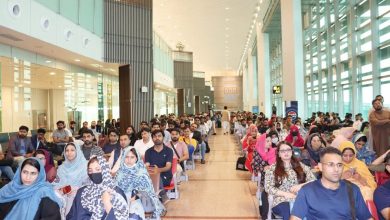Workers sceptical of better pay, firms concerned over higher costs as Malaysia pilots Singapore-styled progressive wage policy
[ad_1]
UNIONS ASK FOR INCLUSION IN TALKS
Meanwhile, there seems to be apprehension from the side of the workers’ unions as well, with the secretary-general of the Malaysian Trade Union Congress (MTUC) Kamarul Bahrin Mansor saying that they were not invited for talks about the policy.
“Any new policy concerning workers that the government wants to implement should be discussed with workers and their representatives,” he told CNA.
Mr Kamarul said that MTUC had yet to discuss the white paper internally and could not comment much on the policy for now.
He, however, had some questions about how productivity would be measured in certain sectors.
“It could work for someone who works in a factory but how about for a cleaner or a security guard? There are many questions about its implementation and how it will work,” said Mr Kamarul.
Giving an example of those who work as cleaners, Mr Lee proposed that employers could invest in these workers by ensuring they grow in their careers to reach a supervisory level
Mr J. Solomon, the secretary-general of the Bank Union Employee of Malaysia (NUBE) cautioned that the policy will turn out to be another wage subsidy and claims that its link to productivity is “false”.
“Malaysia’s wage structure was never tied to productivity. In fact, over the past decades, workers’ productivity in the manufacturing and services sectors has detached from wage growth. Productivity grows higher than wage growth,” he told CNA.
Malaysia currently has a minimum monthly wage of RM1,500 per month, which was implemented in May of last year. Under the National Wages Consultative Council Act 2011, the minimum wage must be reviewed every two years.
Mr Solomon claimed that the current minimum wage level is unfair and that the actual minimum wage implemented last year should have been around RM2,300 per month, citing the minimum amount needed to not live in poverty as well as the increased cost of living.
“We seem to be so eager to talk about ‘low’ workers’ productivity and not serious about providing fair wages for the workers. The white paper is also more concerned with solving employers’ ‘claim’ of workers having low productivity,” he said.
Parti Sosialis Malaysia (PSM) deputy chairperson S. Arutchelvan said that he was worried that the progressive wage policy would come at the expense of the minimum wage policy which he stressed was something that workers fought very hard for.
“The progressive wage policy, if implemented, should be anything above a National Minimum Wage reviewed every two years. Don’t replace the minimum wage policy, just enhance it,” he said in a statement on Dec 1.
Mr Rafizi said in a post on X on Dec 4 that the minimum wage would stay, and that it would be strengthened by the progressive wage policy.
Mr Chin of the SME Association believed that the two were not related as the minimum wage was law while the progressive wage policy is just a pilot programme for now that is not mandatory.
He believed that the government has a big role to play in ensuring that wages are high by bringing in more development and foreign direct investment (FDI) into the country while maintaining the ease of doing business in the country.
Mr Chin also hoped the government would help businesses overcome issues they face such as the lack of good workers.
“If I am doing well, I won’t mind paying my staff (members) more,” he said.
Mr James – the general manager of the chocolate firm – separately hoped that the government would bear the cost of training their employees and said that they welcomed the financial assistance pledged by the government.
“If there are no subsidies, the prices of products will go up. When the minimum wage was increased last year from RM1,200 to RM1,500, we had no choice but to raise the price of our products,” he said.
As for Mr Ahmad, he can only hope that his employer participates in the programme but does not really expect them to do so.
“If the policy only results in extra expenditure for the company, they will not participate in the programme. It is time that I look harder for another job,” he said.
[ad_2]
Source link



